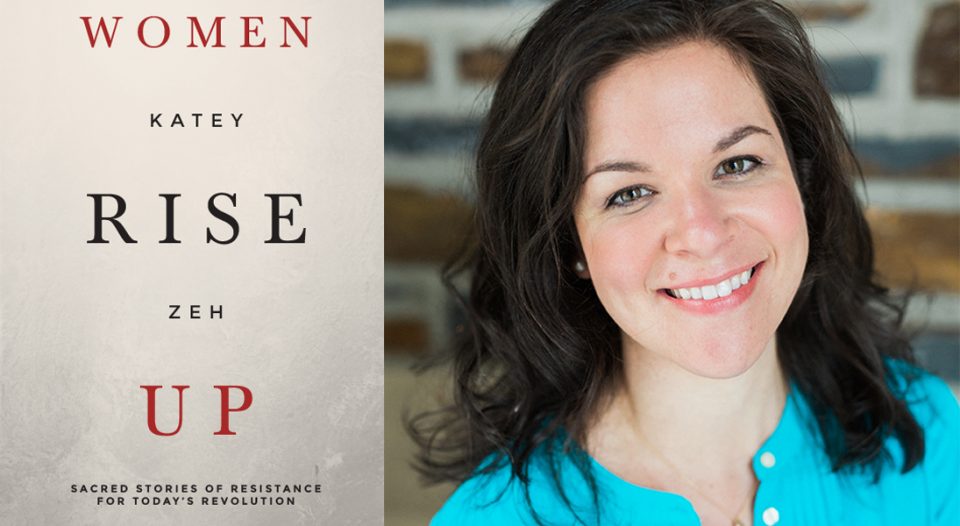Katey Zeh thought she knew the stories in Scripture—and she did, but mainly those about men. When she started combing through the Bible looking specifically for women, named or unnamed, everything changed. Her new book Women Rise Up: Sacred Stories of Resistance for Today’s Revolution (FAR Press) is partially the result of that exploration. Not only did she discover more about the women in Scripture, she found that those women could deeply inform her faith and life today.
Living Lutheran spoke with Zeh about the book, the importance of women’s stories in Scripture and gender inequality in the world today.
Living Lutheran: Could you tell us about your book?
Women Rise Up is a timely take on the tenacious women of the Bible. Each chapter focuses on a particular sacred text, and I examine it through the lens of today’s struggle for gender justice. For example, I talk about Hagar from Genesis as a survivor of human trafficking. I also weave in some of my personal journey along the way.
How did you decide which women to include?
Since each chapter focuses on a specific issue related to gender justice, I searched for texts that would illuminate a different aspect of gender inequality. But I was also striving for breadth and balance in the book. I wanted to include women of the Hebrew Bible and women of the New Testament; stories of women we hear about in church and stories that are left out of Sunday morning; women who are named and those who are not. Some of the women, like Hagar and Ruth, I’d been writing about for years, while others, like the widow in 2 Kings, I had never explored prior to writing the book.
By extending grace to these ancient women, I find that we can offer it to ourselves.
One of the threads that runs through Women Rise Up is motherhood. What do you find particularly compelling about that topic in a biblical context?
When I was beginning to write the book, I was in my first year of parenting my daughter, so I encountered biblical stories about infertility, pregnancy, reproductive loss and parenting in more personal ways than I would have in the past. I’m amazed at just how much reproductive oppression is captured in our sacred texts—how so many of the women in the Bible both reinforce and resist it. Women like Rachel, Leah and Sarah in Genesis are guilty of using their power unjustly in the form of forced surrogacy while Shiphrah and Puah in Exodus use their power and knowledge as midwives to protect the Hebrew women and children from destruction at the hands of the Egyptian pharaoh.
What do you see as some of the gifts of closely examining women’s stories in Scripture today?
Most books tend to portray women in the Bible as either unrepentant sinners or helpless victims. By contributing a more nuanced take on these women’s lives, I give these stories some much-needed breathing room. By extending that grace to these ancient women, I find that we can offer it to ourselves. We all get permission to be fully human.
What surprised you most as you interacted with these stories?
I was surprised how often new ideas and insights emerged even after reading the same text hundreds of times. That’s why the sacred texts are amazing. They truly are living!
What are your hopes for your readers?
I hope that this book sparks their curiosity about these women and others in the Bible who found ways to survive, resist and thrive—and that this exploration of sacred stories leads to sacred sharing, both in and outside of our faith communities, about our own lives. But I also hope this book moves us all to take action in meaningful, sustainable ways by sharing our resources and voices with the movements and organizations led by those most impacted by systems of injustice. Like the women of this book, they will lead the way for us all to rise up.






